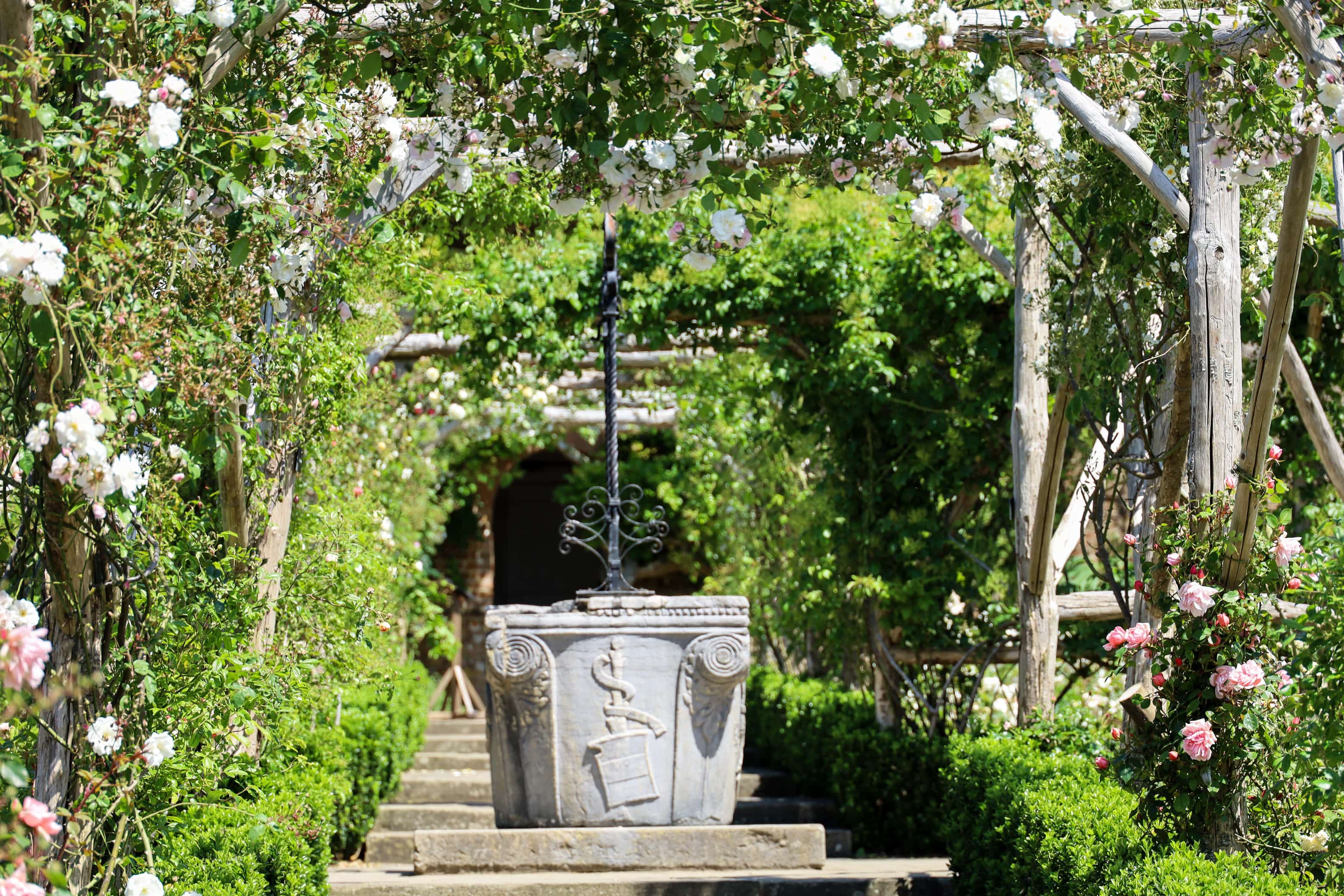Standing beneath the weathered sweet chestnut pergolas at Polesden Lacey on a June morning, camera in hand and notebook rapidly filling with observations, I felt the weight of documenting something precious that may soon change. The National Trust has announced plans for a major restoration of the historic rose pergola—the very heart of Margaret Greville's beloved rose garden. While restoration is necessary and welcome, their statement that "removing the rose pergola will also require taking out the existing roses and replacing them with new ones" prompted this comprehensive documentation.
This guide serves as a botanical snapshot—a reference point for rose lovers to understand what grew here before the restoration project begins. Armed with the management team's planting map (generously shared, though incomplete) and my own systematic survey, I've catalogued every rose I could identify across the entire garden. What follows is the most complete record available of Polesden Lacey's roses in 2024, before any changes take place.
The Pergola Restoration Project: A Rose Lover's Perspective
The National Trust is raising funds to replace the wooden pergola structure, citing concerns about the existing roses suffering from "old age, disease and the effects of climate change." Just look at the cover image for this post which depicts the classical look of this garden with its elegant stone well and lush rose pergola from 2024 and much older photo of the garden from back in 1923. Mature climbing roses are definitely the stars of the show here. While supporting the preservation of this historic structure, I must voice a common concern among rose enthusiasts: mature climbing roses take years, sometimes decades, to achieve the cascading abundance that currently defines this garden.

The claim that climate change necessitates replacing established roses deserves scrutiny. Roses are remarkably resilient plants, and London's climate zones haven't shifted dramatically enough to warrant wholesale replacement. What these roses need—and what many historic gardens require—is proper irrigation systems to support them through increasingly dry summers. This is a matter of garden infrastructure, not variety selection.
If the National Trust seeks sustainability and lower maintenance, perhaps examining the longevity of metal versus wooden structures would prove worthwhile, alongside investment in automated irrigation. The goal should be preserving as many existing roses as possible while the pergola is rebuilt, maintaining the garden's maturity and appeal for rose lovers who travel considerable distances to see it.
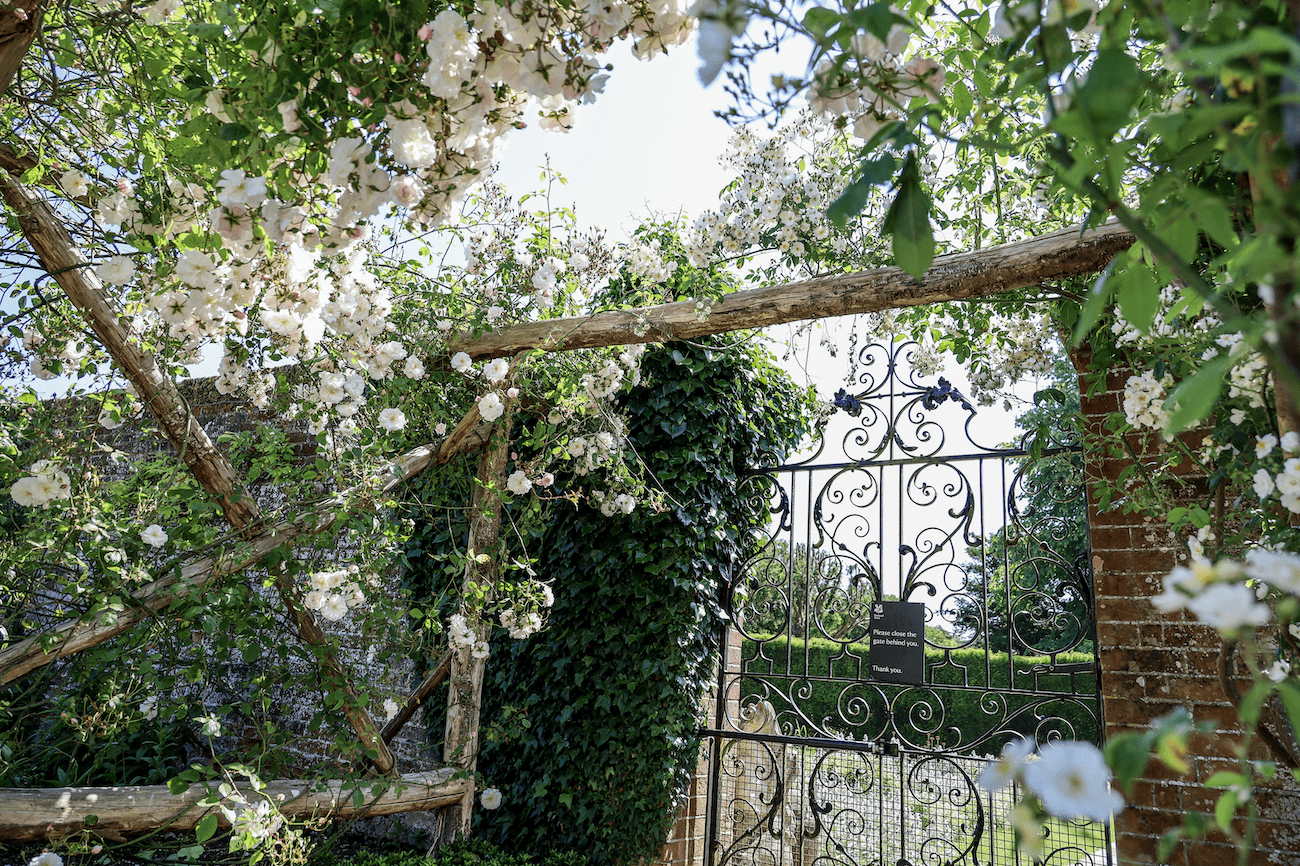

Complete Rose Census: Main Rose Garden
Central Beds and Formal Plantings
The formal beds contain a carefully curated mix of hybrid teas, floribundas, and hybrid musks:
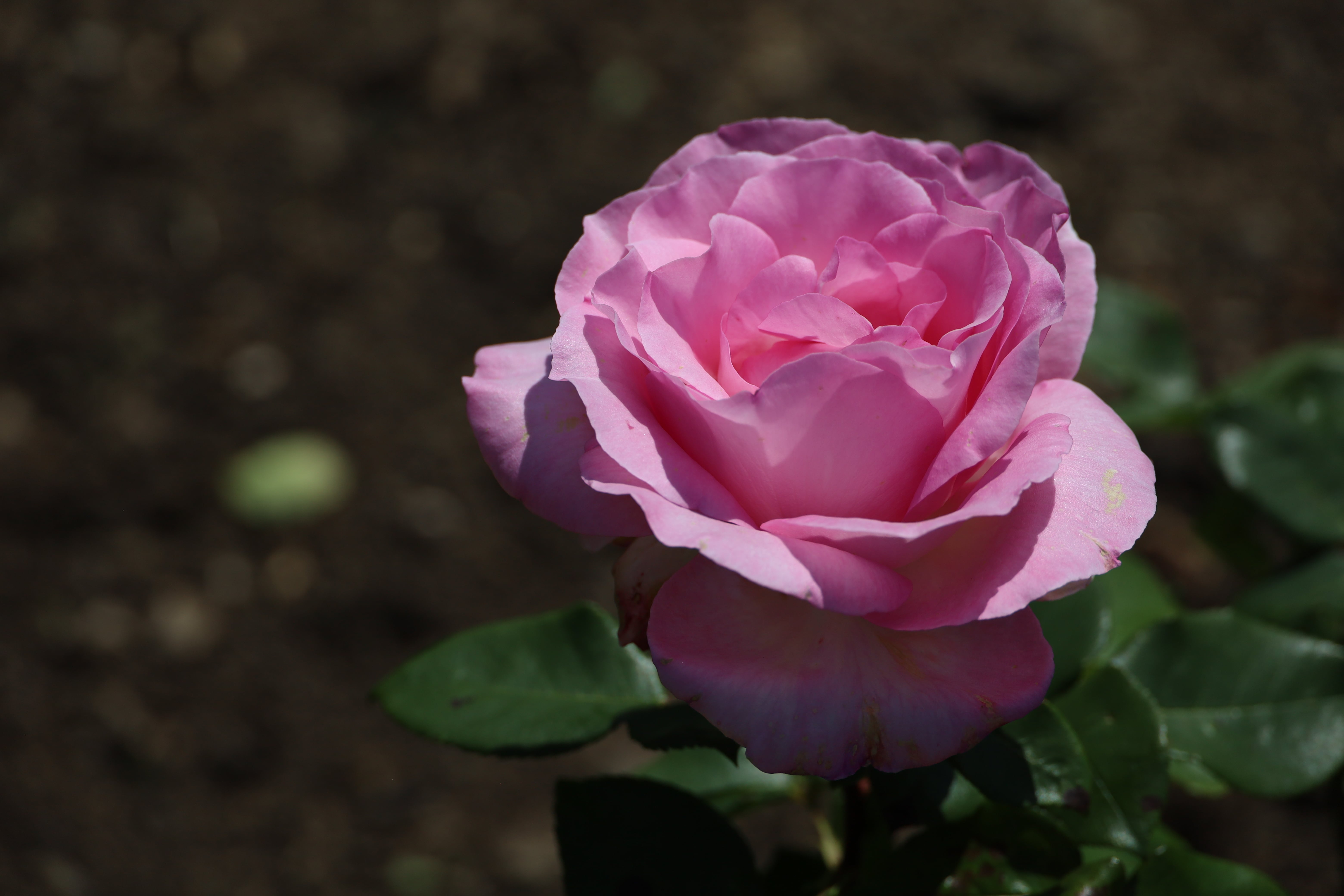
Hybrid Teas:
- Rosa 'Just Joey' - That legendary apricot beauty from 1972
- Rosa 'Pink Perfection' - Classical form in soft pink
- Rosa 'Belles Rives' - Elegant salmon-pink blooms
- Rosa 'A Whiter Shade of Pale' - Modern white introduction
- Rosa 'Warm Wishes' - Sunset tones of orange and pink
- Rosa 'Rose Gaujard' - Bicolour pink and white rose from 1957


Floribundas:
- Rosa 'Frensham' - Brilliant scarlet clusters
- Rosa 'Lucky' - Deep pink masses
- Rosa 'Iceberg' - The incomparable white (both bush and climbing forms present)
- Rosa 'English Miss' - Soft pink with silver reverse
- Rosa 'You are Beautiful' - Modern pink introduction
- Rosa 'Valentine Heart' - Pink blooms with romantic form
- Rosa 'Arthur Bell' - Golden yellow fading to cream
- Rosa 'Pink Parfait' - Bicolor pink and cream from 1960
- Rosa 'Octavia Hill' - Named for the social reformer
- Rosa 'Queen Elizabeth' - The pink grandiflora standard
- Rosa 'Many Happy Returns' - Pink shrub rose
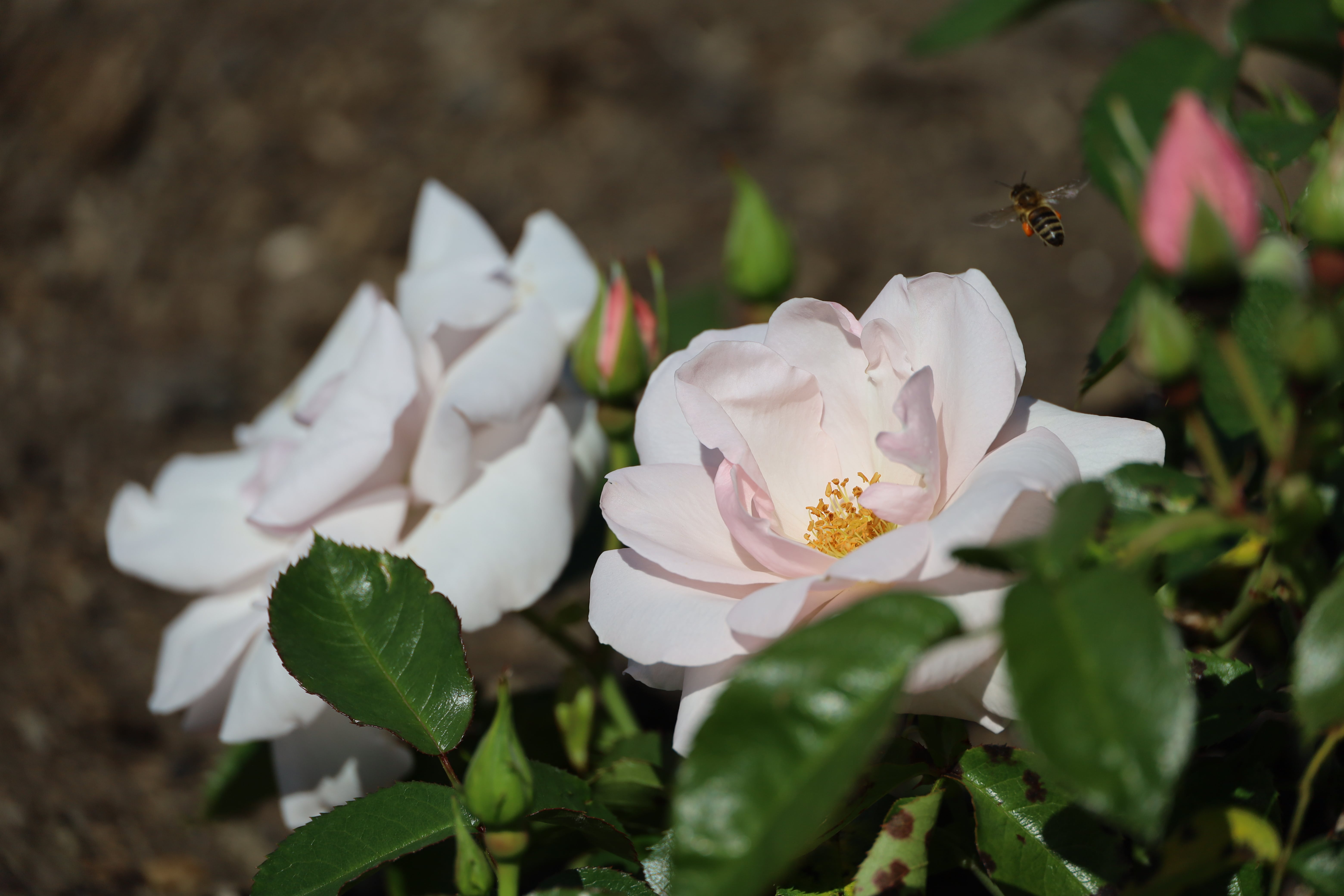
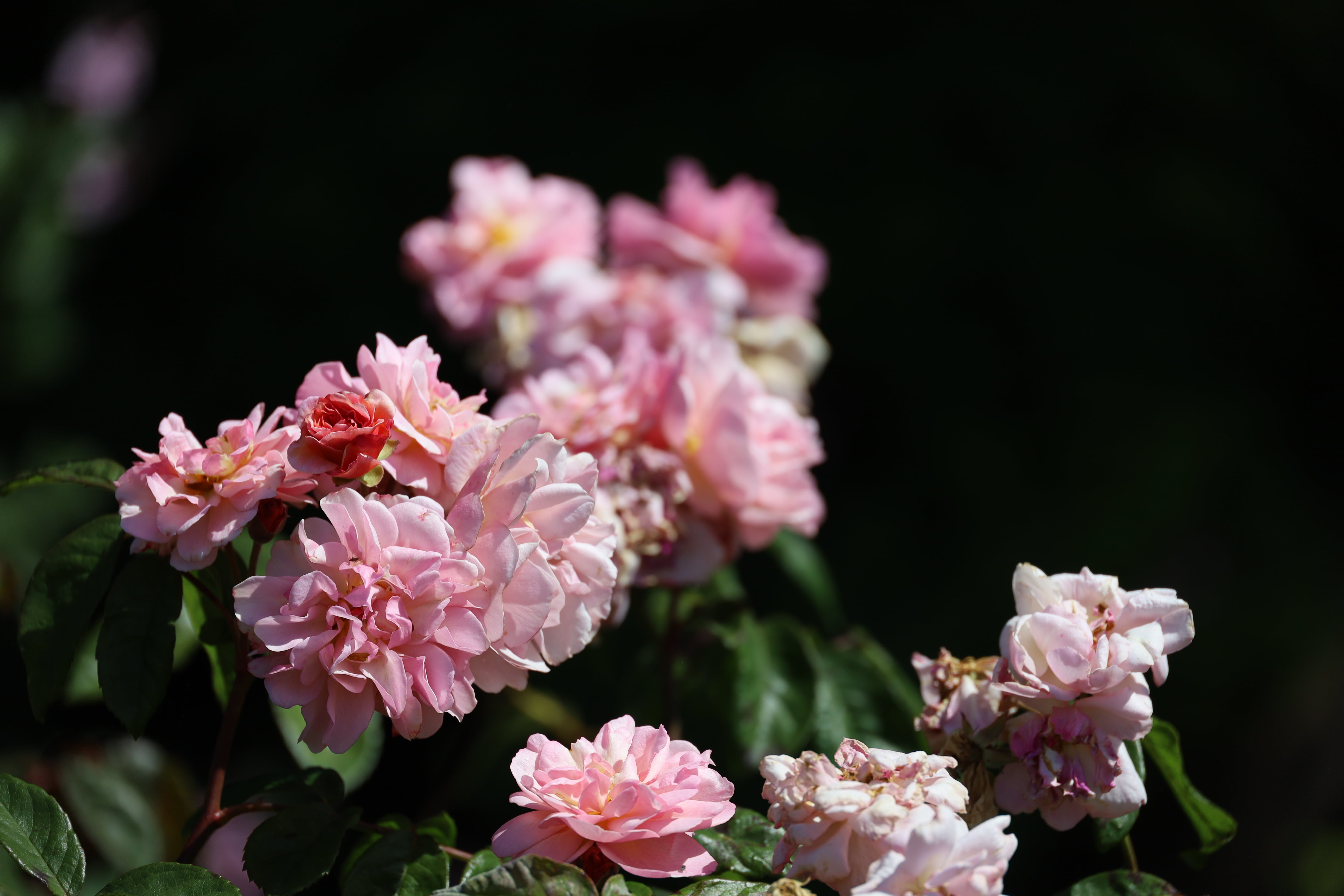
Hybrid Musks (The Edwardian Backbone):
- Rosa 'Penelope' - Pale pink to cream clusters
- Rosa 'Cornelia' - white rose (multiple plantings)
- Rosa 'Prosperity' - White rosettes in abundance (multiple locations)
- Rosa 'Buff Beauty' - Apricot-yellow blooms
- Rosa 'Lavender Lassie' - Pink-lavender clusters
- Rosa 'Felicia' - Salmon-pink with silvery tones
- Rosa 'Moonlight' - Creamy white semi-double blooms

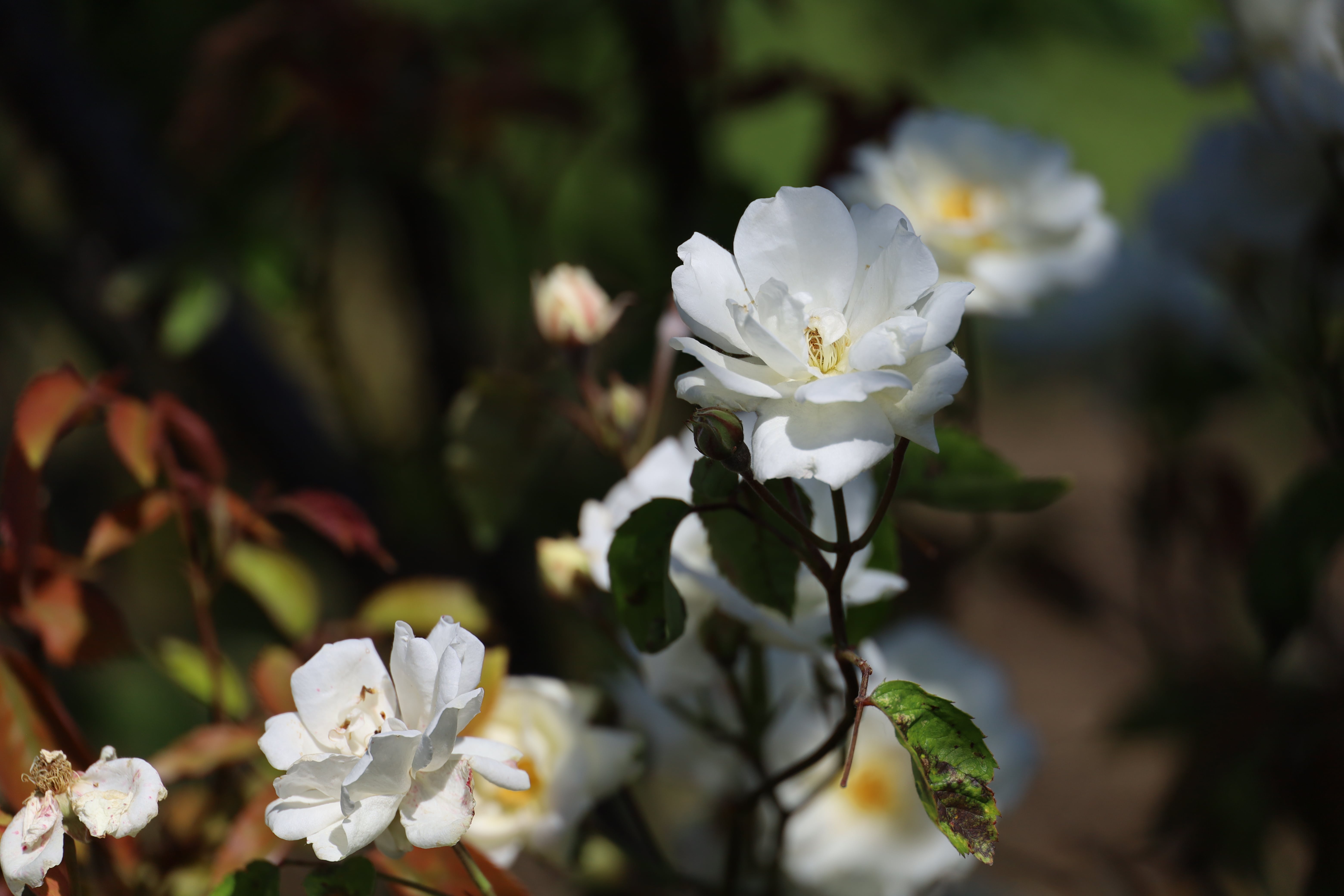
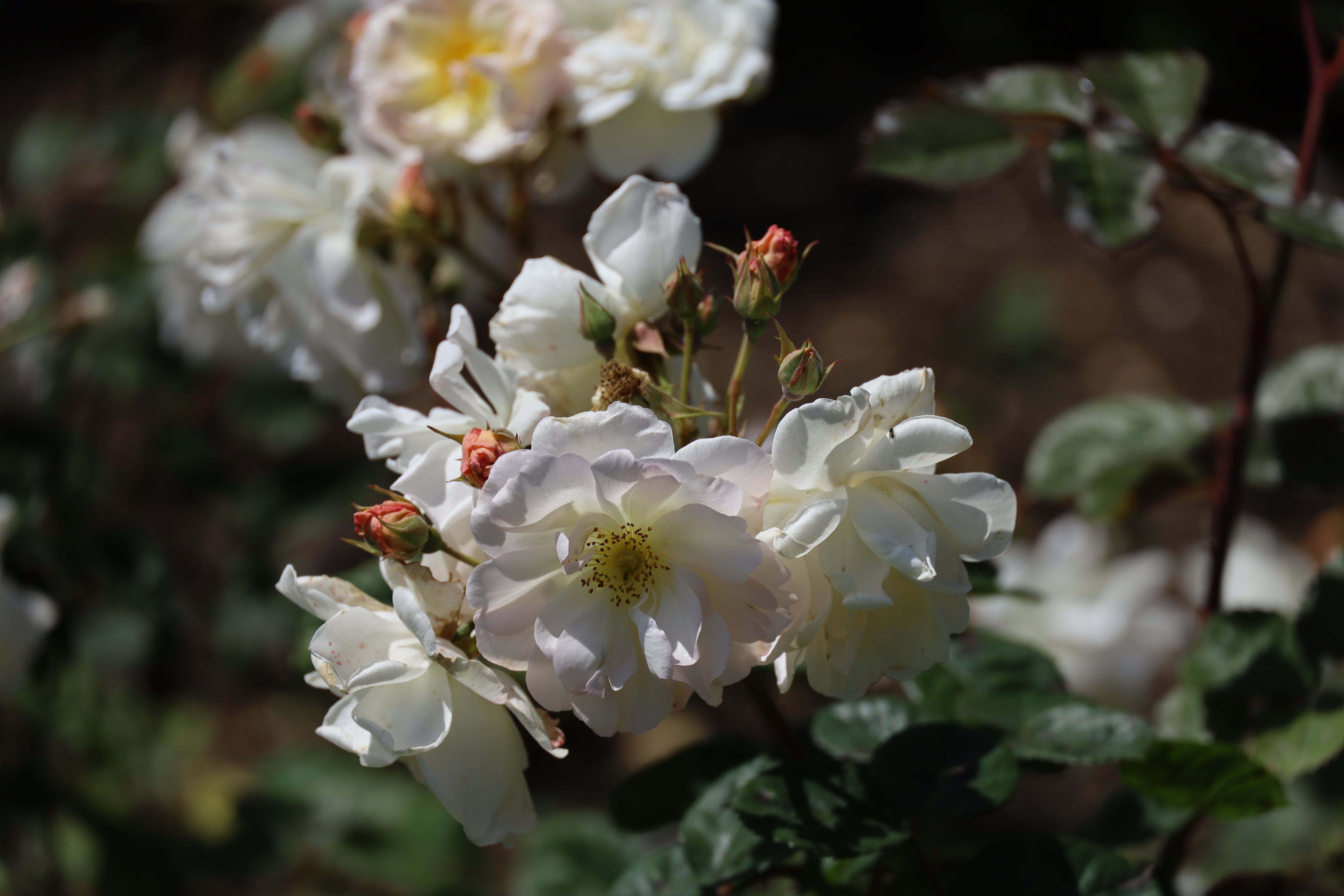
English Shrub Roses:
- Rosa 'Desdemona' - David Austin's white with pink flush
- Rosa 'Emily Bronte' - Austin's soft pink creation
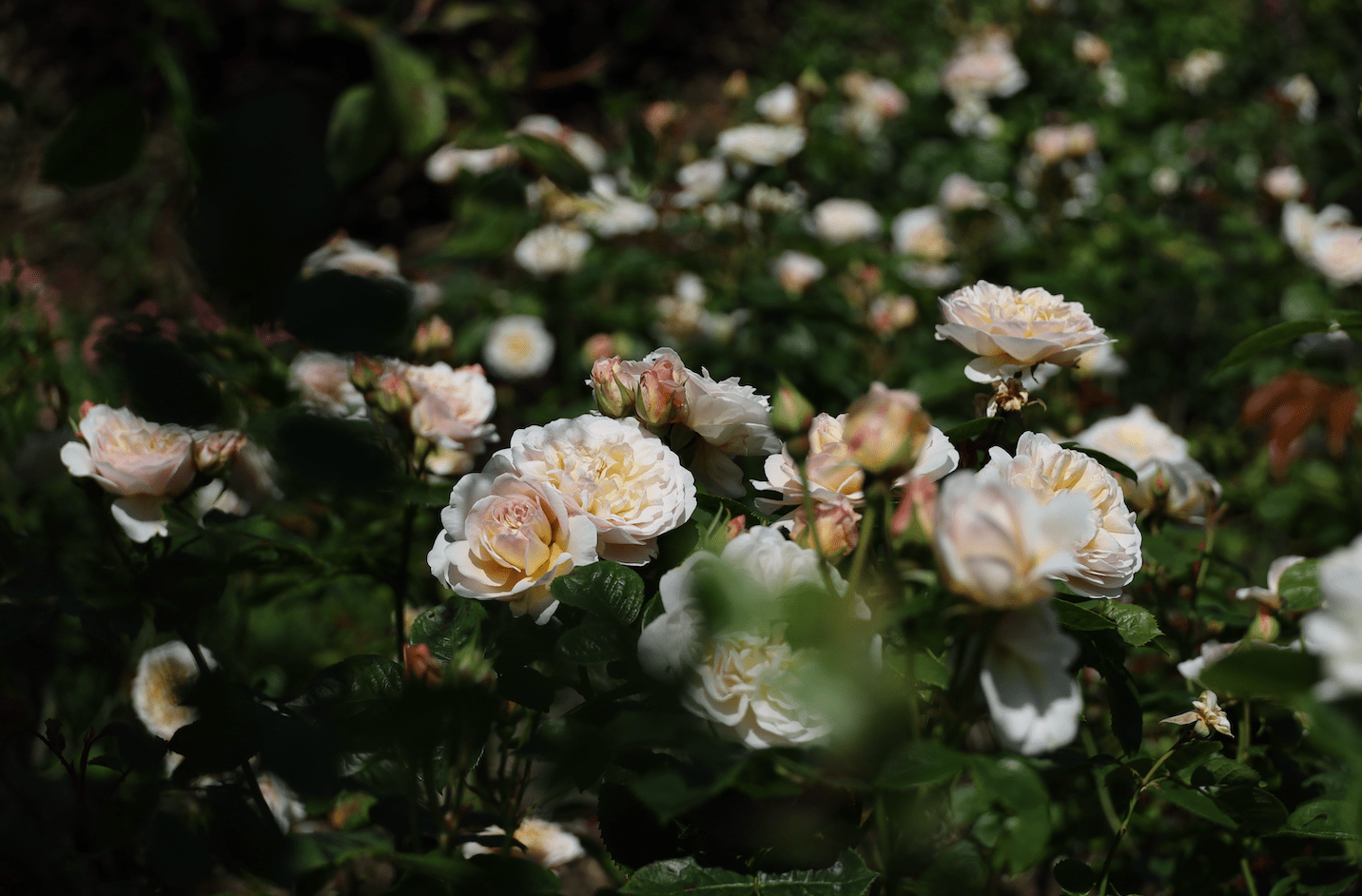
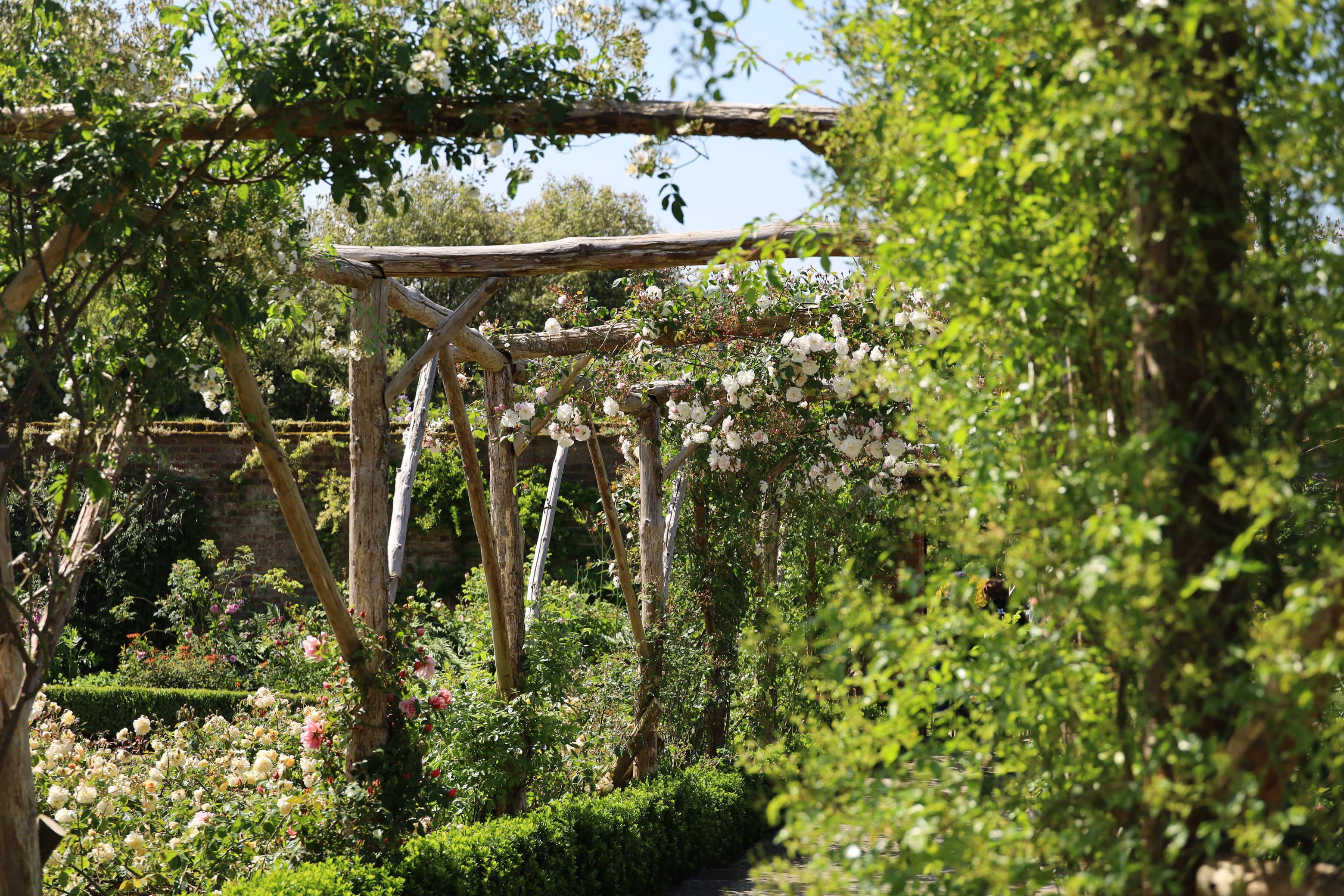
The Pergola Ramblers: A Century of Climbing Roses
These are the roses most at risk from the restoration, and their loss would fundamentally alter the garden's character:
Historical Ramblers (Dating from Mrs Greville's Era):
- 'Adélaïde d'Orléans' (1826) - Pale pink semi-double blooms
- 'Felicite Perpetue' (1827) - Small white pompoms
- 'Albéric Barbier' (1860) - Creamy yellow fading to white
- 'American Pillar' (1862) - Single pink with white eye
- 'Ghislaine de Feligonde' (1876) - Apricot-yellow clusters
- 'Dorothy Perkins' (1901) - Pink clusters, quintessentially Edwardian
- 'Debutante' (1902) - Soft pink rosettes
- 'Mrs F.W. Flight' (1905) - Pink semi-double clusters
- 'Excelsa' (1909) - Crimson replacement for Dorothy Perkins
- 'Veilchenblau' (1909) - The purple rambler
- 'Ethel' (1912) - Flesh pink blooms
- 'Rambling Rector' (1912) - Magnificent white cascades
- 'Sander's White' (1912) - Pure white rosettes
- 'Albertine' (1921) - Salmon-pink, intensely fragrant
- 'New Dawn' (1930) - Pale pink, repeat flowering
- 'Easlea's Golden Rambler' (1932) - Golden yellow blooms
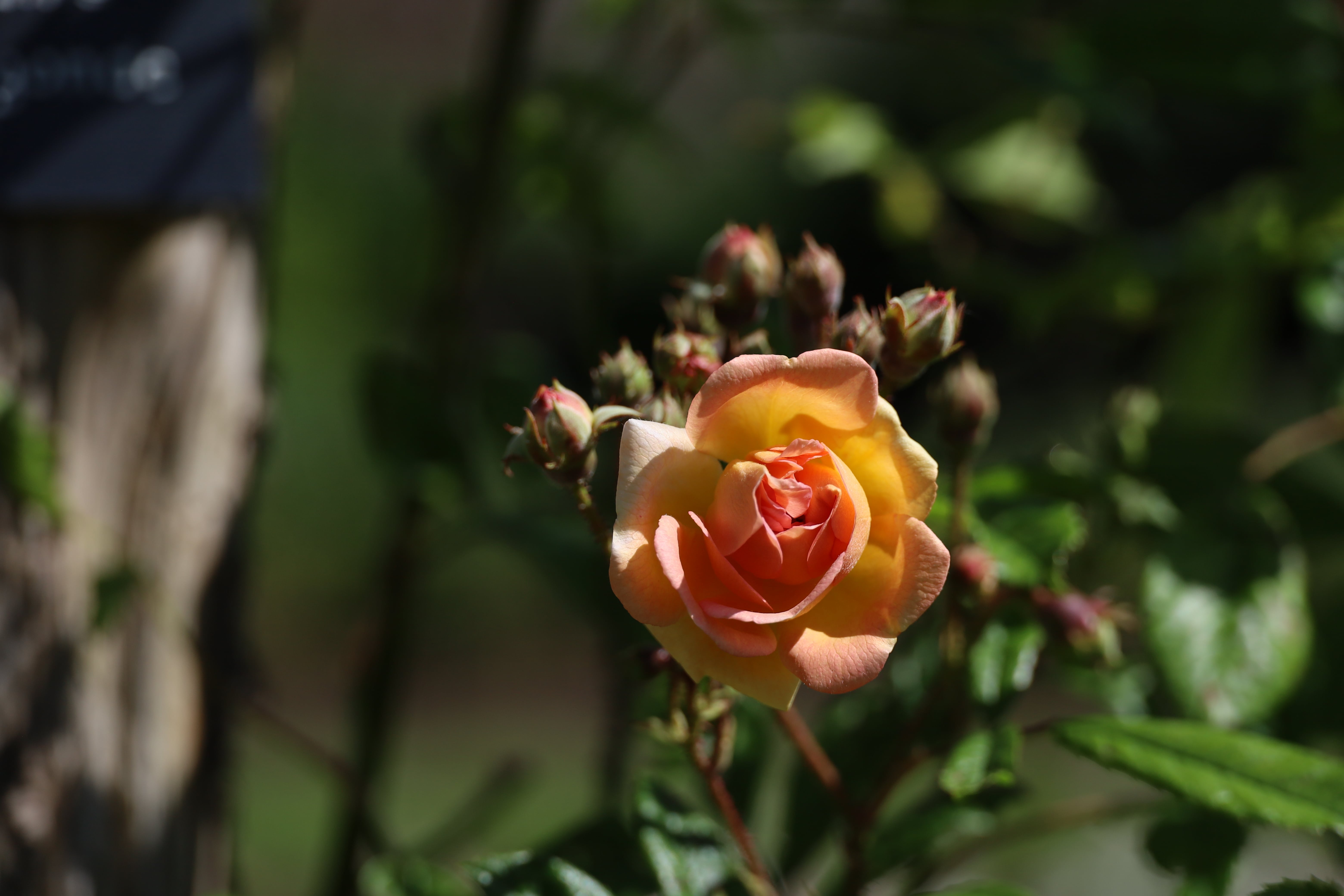
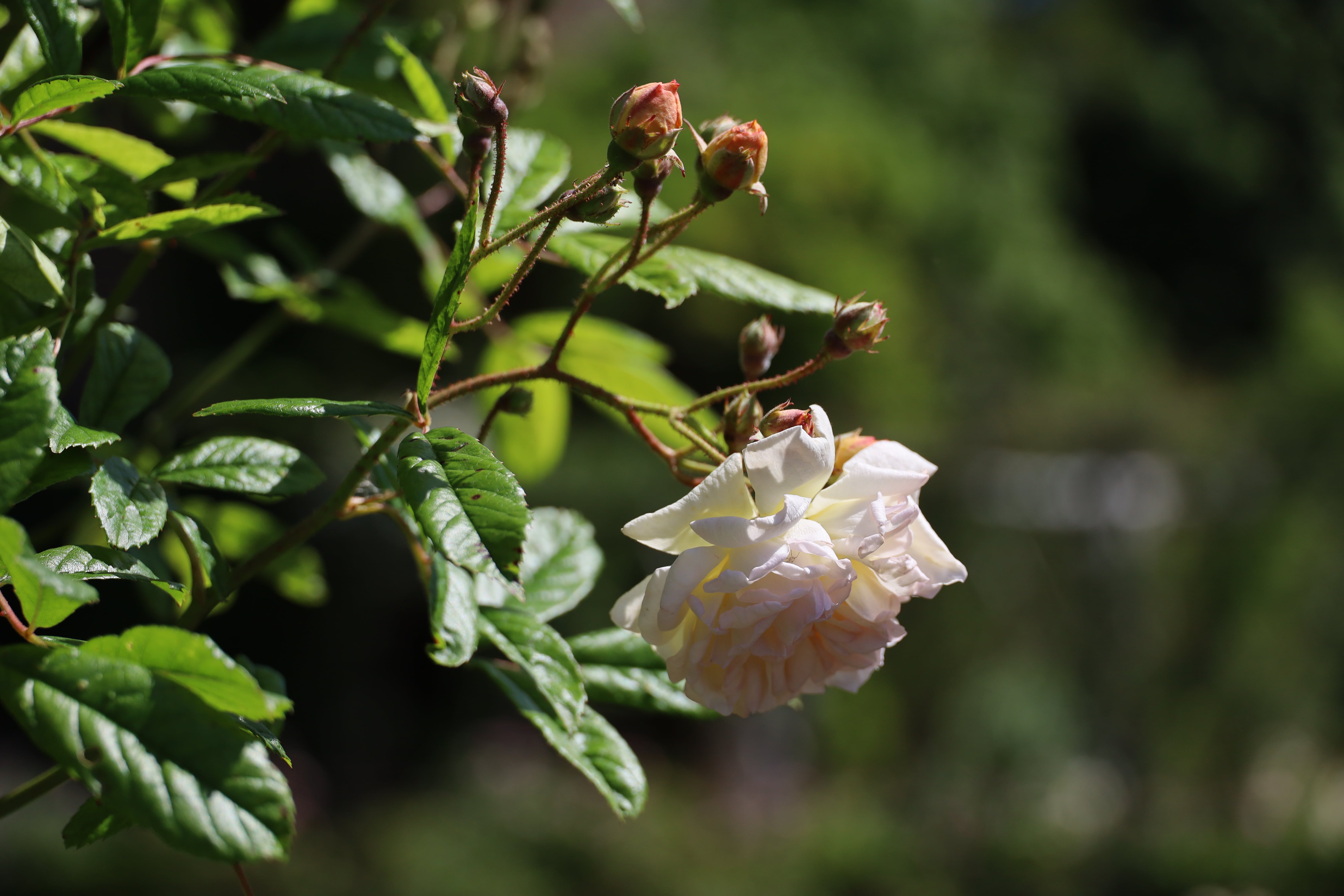
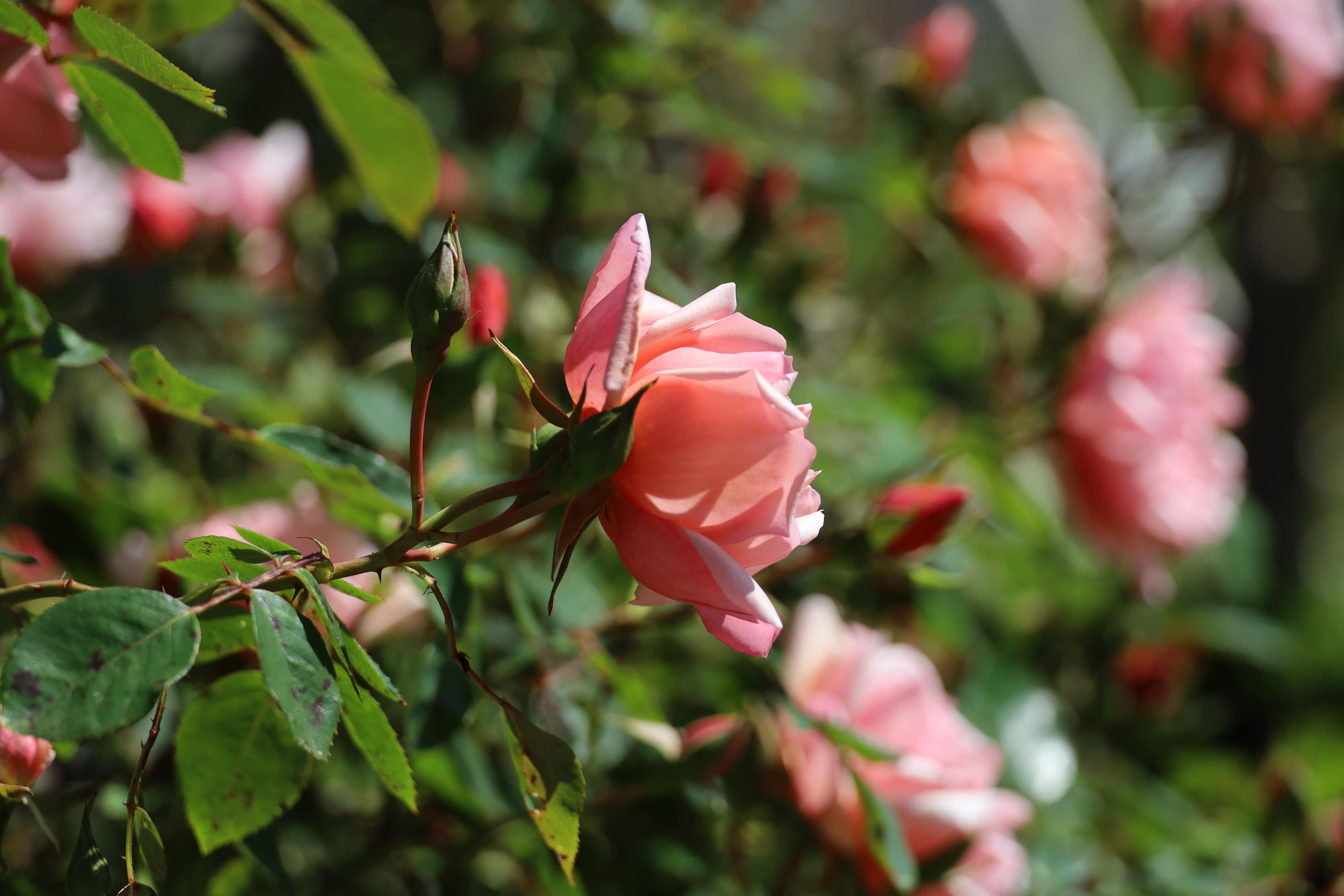
Post-Greville Addition:
- 'Crimson Shower' (1951) - The only rambler added after her time
Outer Borders: Species and Old Garden Roses
These beds contain the collection's historical depth:
Species and Near-Species:
- Rosa glauca (rubrifolia) - Purple-grey foliage
- Rosa spinosissima - Scots rose with cream flowers
- Rosa spinosissima 'Andresti' - Pink form
- Rosa sericea pteracantha - Ferny foliage, huge red thorns
- Rosa cantabrigiensis - Yellow bells in spring
- Rosa webbiana - Himalayan species
- Rosa virginiana - American native, pink blooms
- Rosa pimpinellifolia - Another Scots rose form
- Rosa harisonii - 'Harison's Yellow', double yellow
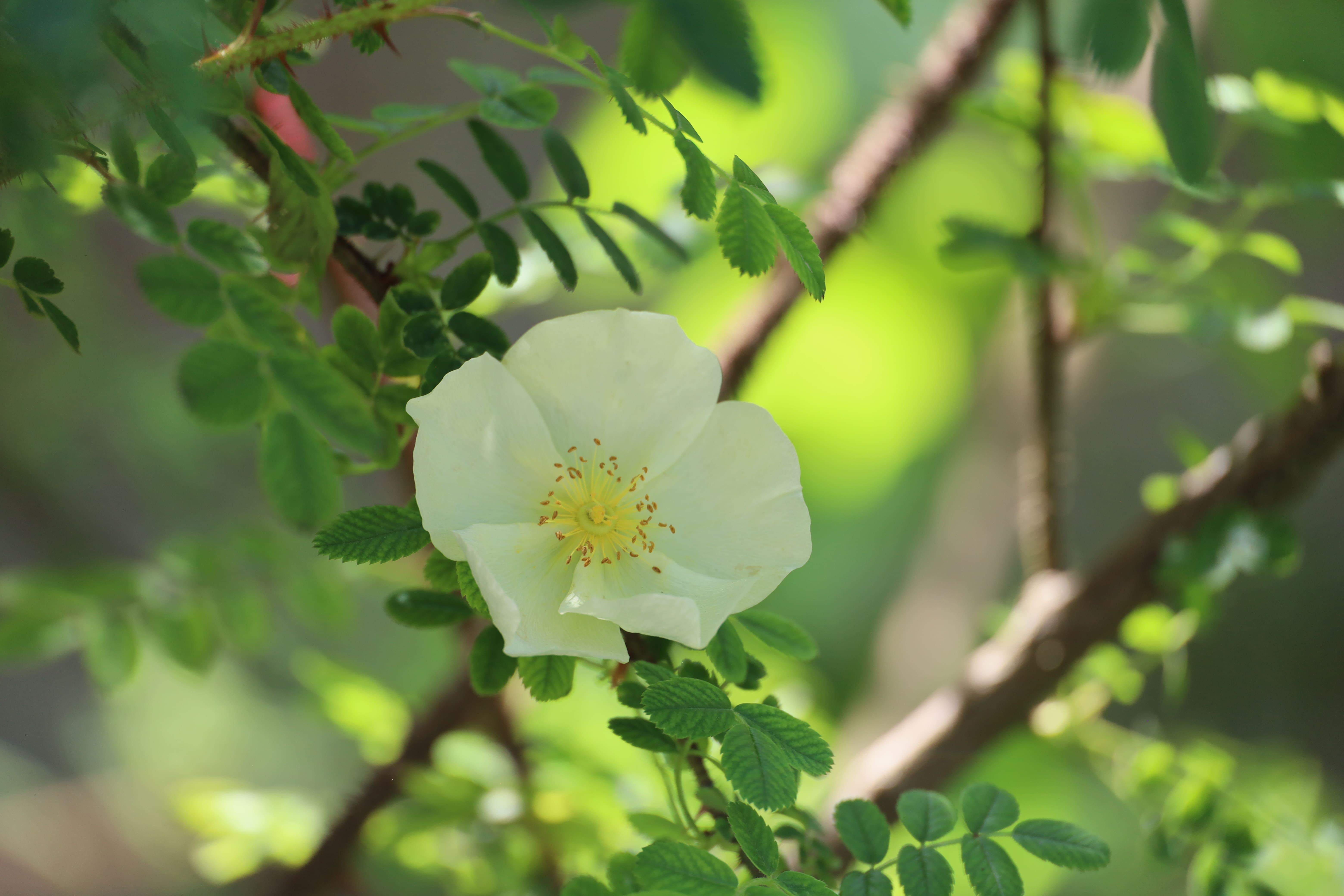
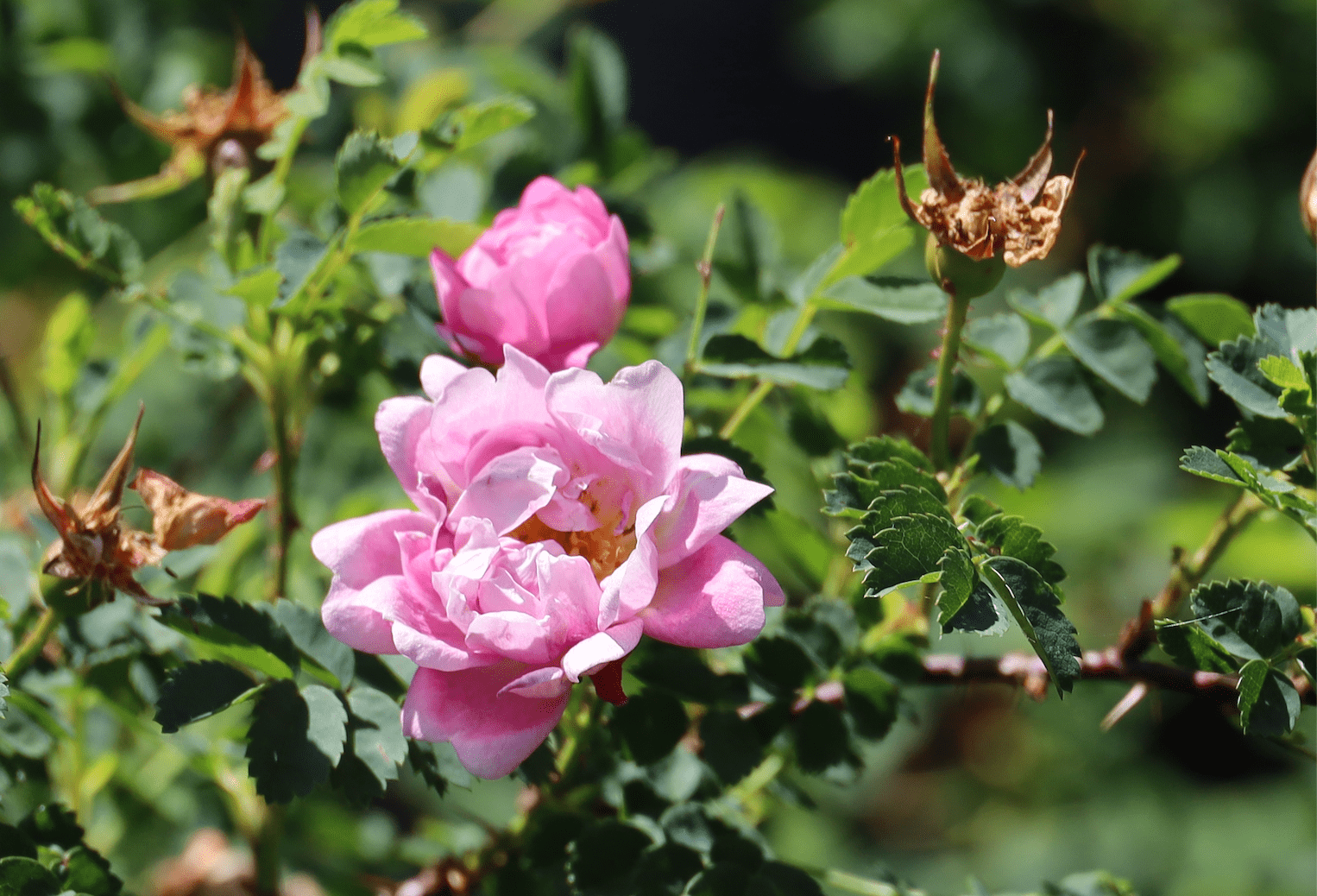
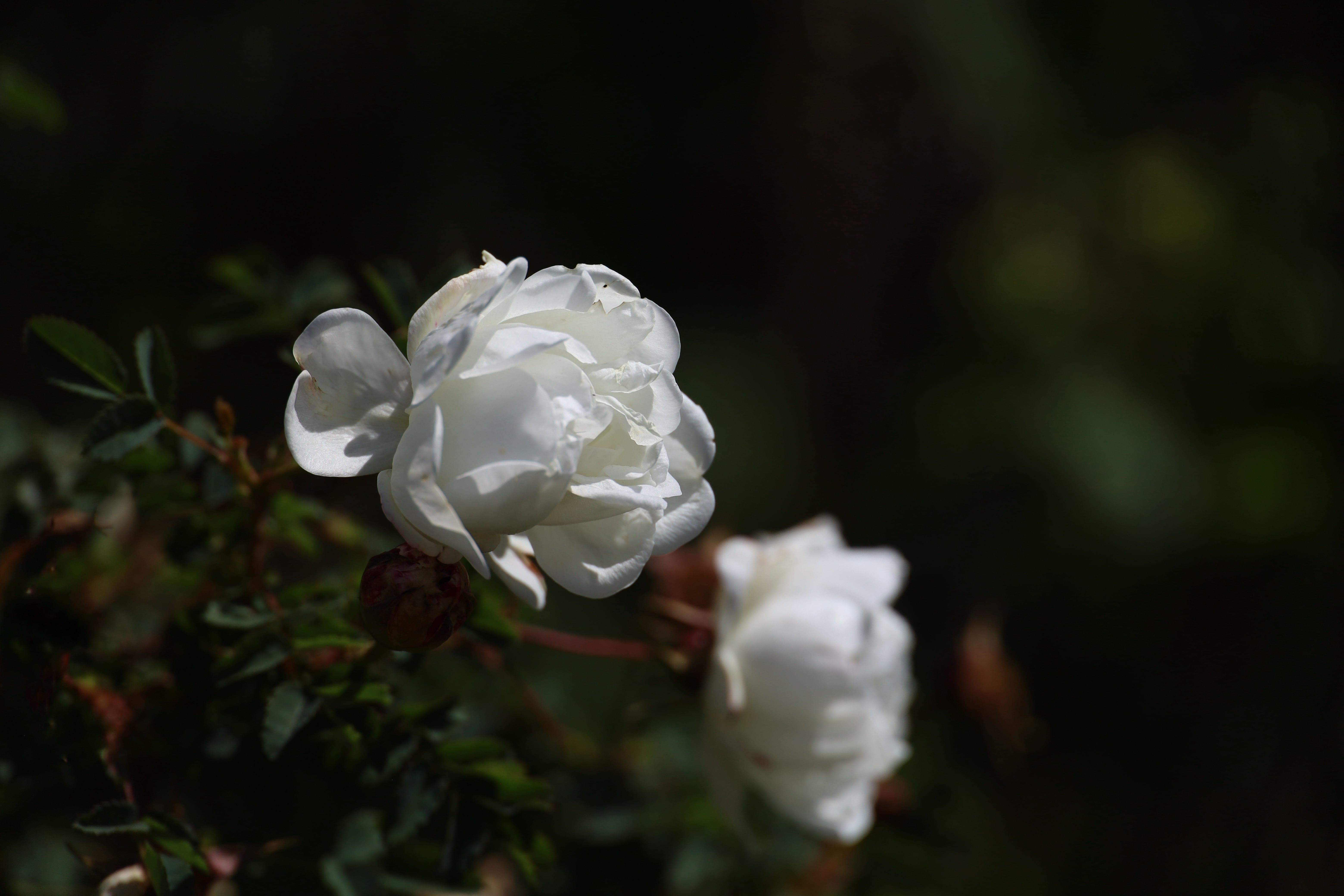
Old Garden Roses:
- 'Roseraie de l'Hay' - Rugosa hybrid, magenta purple
- 'Canary Bird' - Early yellow species hybrid
- 'Stanwell Perpetual' - Repeat-flowering Scots rose
- 'Cardinal de Richelieu' - Deep purple gallica
- 'Cerise Bouquet' - Modern shrub with cerise-crimson blooms, Kordes, 1958. Early summer flowering only.
.jpeg)

Beyond the Walled Garden: Additional Discoveries
My explorations revealed numerous roses not documented on the official map:
Kitchen Garden & Cut Flower Garden
- Rosa 'Margaret Greville' - Peter Beales' tribute to the garden's creator
- Rosa 'Roald Dahl' - Peach-apricot Austin rose
Double Herbaceous Borders
- Rosa 'Lady Hillingdon' - Climbing tea rose in apricot-yellow
- Rosa 'François Juranville' - Salmon-pink rambler
- Rosa 'Compassion' - Salmon-pink climber

Throughout the Grounds (Undocumented Treasures)
- Rosa 'Graham Stuart Thomas' - His namesake yellow Austin rose
- Rosa 'Sophie's Perpetual' - China rose, deep pink
- Rosa Mundi (R. gallica 'Versicolor') - Striped medieval rose
- Rosa 'Scharlachglut' - Scarlet modern shrub
- Rosa 'May Queen' - Pink rambler
- Rosa 'Madame Alfred Carrière' - White noisette climber
- Rosa 'Freedom' - Yellow hybrid tea
- Rosa 'Madame Knorr' - Portland rose
- Rosa 'Zigeunerknabe' (Gypsy Boy) - Deep purple moss rose
- Rosa 'Indigo' - Purple Portland rose
- Rosa 'de Rescht' - Fuchsia damask
- Rosa 'Félicité Parmentier' - Pale pink alba
- Rosa 'Maigold' - Bronze-yellow climber
- Rosa 'Königin von Dänemark' (Queen of Denmark) - Pink alba
- Rosa 'Chianti' - Wine-red gallica
- Rosa 'Alba Maxima' - The Jacobite rose
- Rosa 'Belle de Crécy' - Cerise-purple gallica
- Rosa 'Comte de Chambord' - Pink Portland
- Rosa 'Belle Isis' - Pale pink gallica
- Rosa 'Mermaid' - Yellow climber with single blooms
- Rosa 'Perle d'Or' - Apricot polyantha
- Rosa 'Elina' - Cream hybrid tea
- Rosa 'China Town' - Yellow floribunda
- Rosa odorata 'Mutabilis' - The butterfly rose
- Rosa 'Jacqueline du Pré' - White modern shrub
- Rosa 'Carpenteria california'
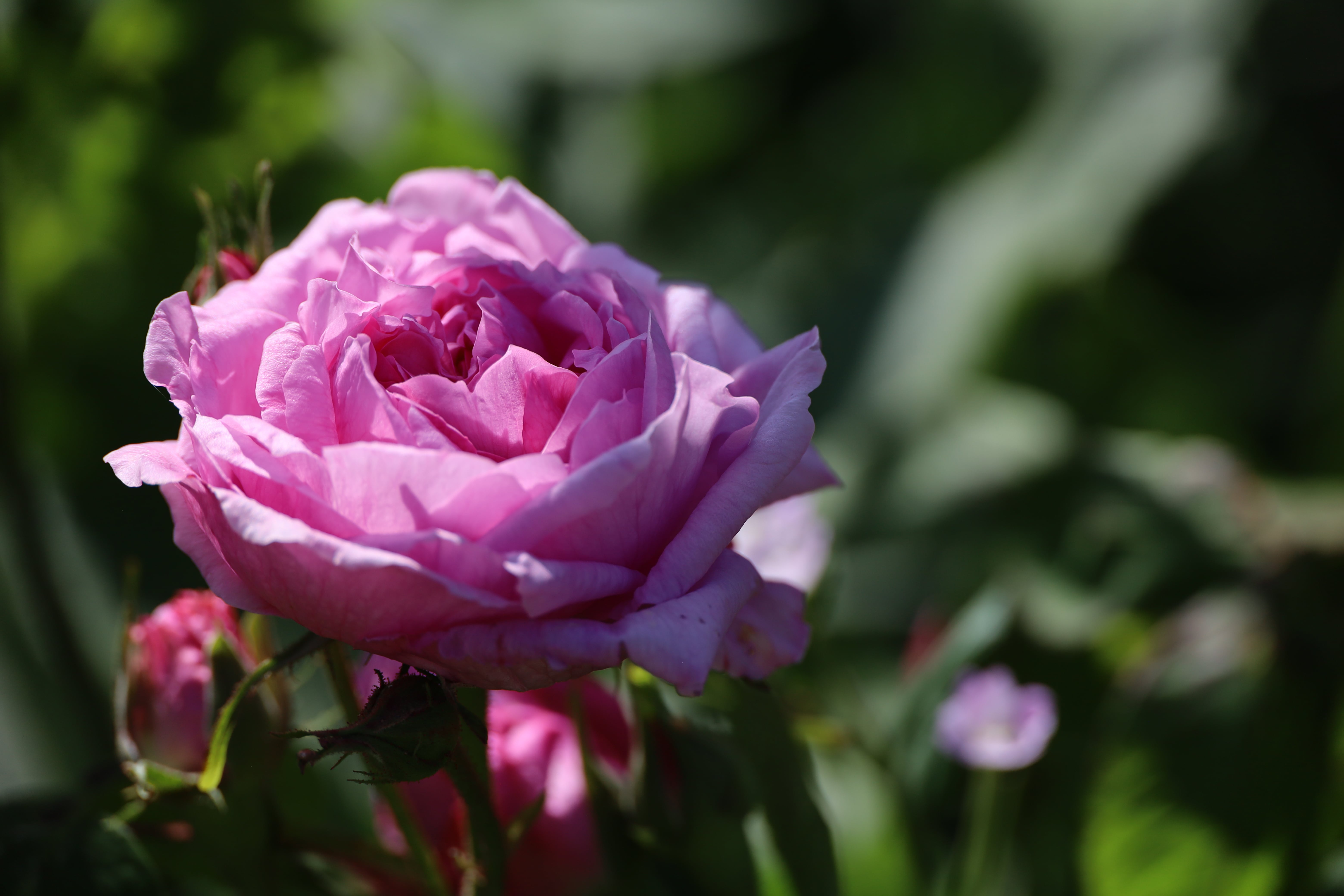
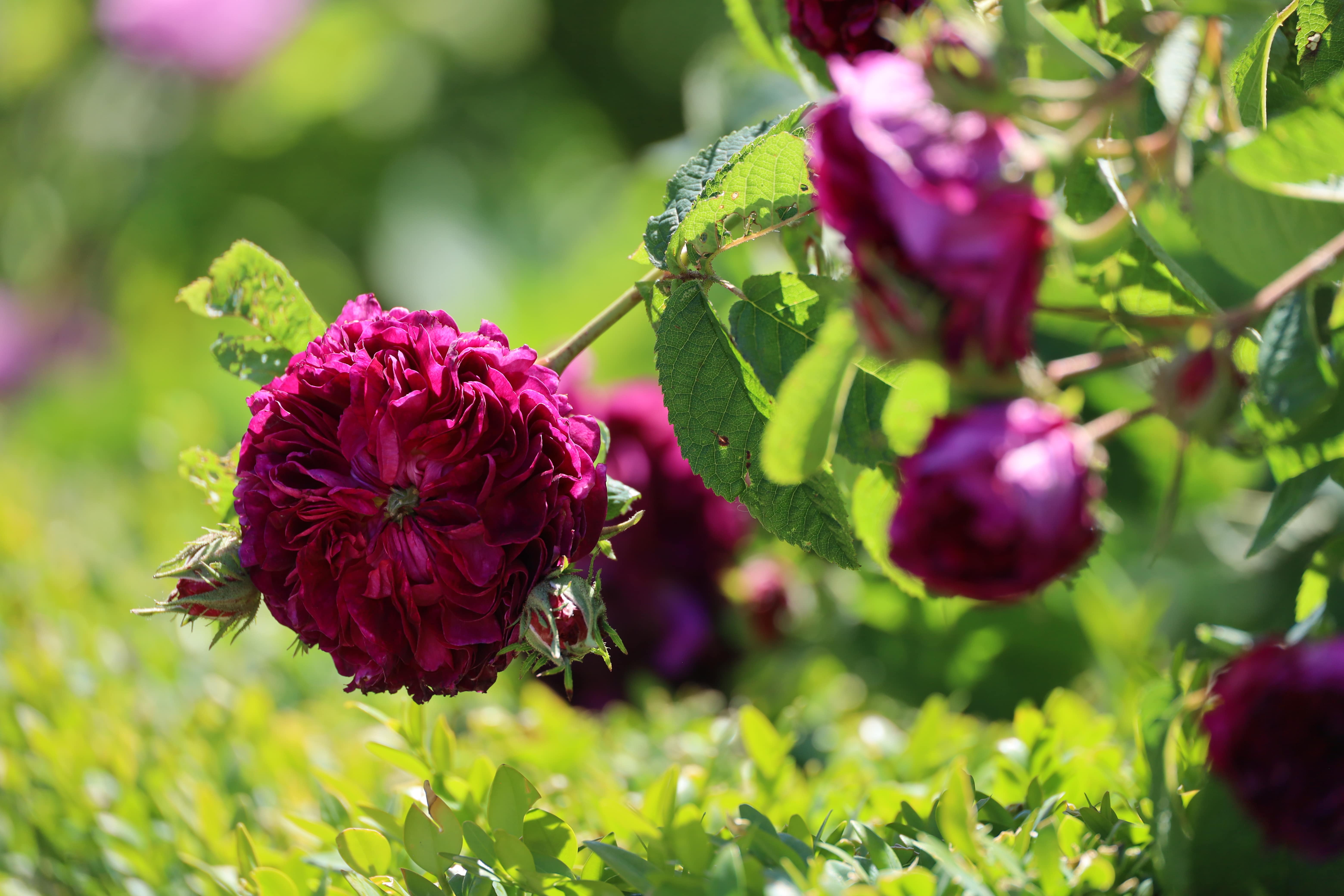
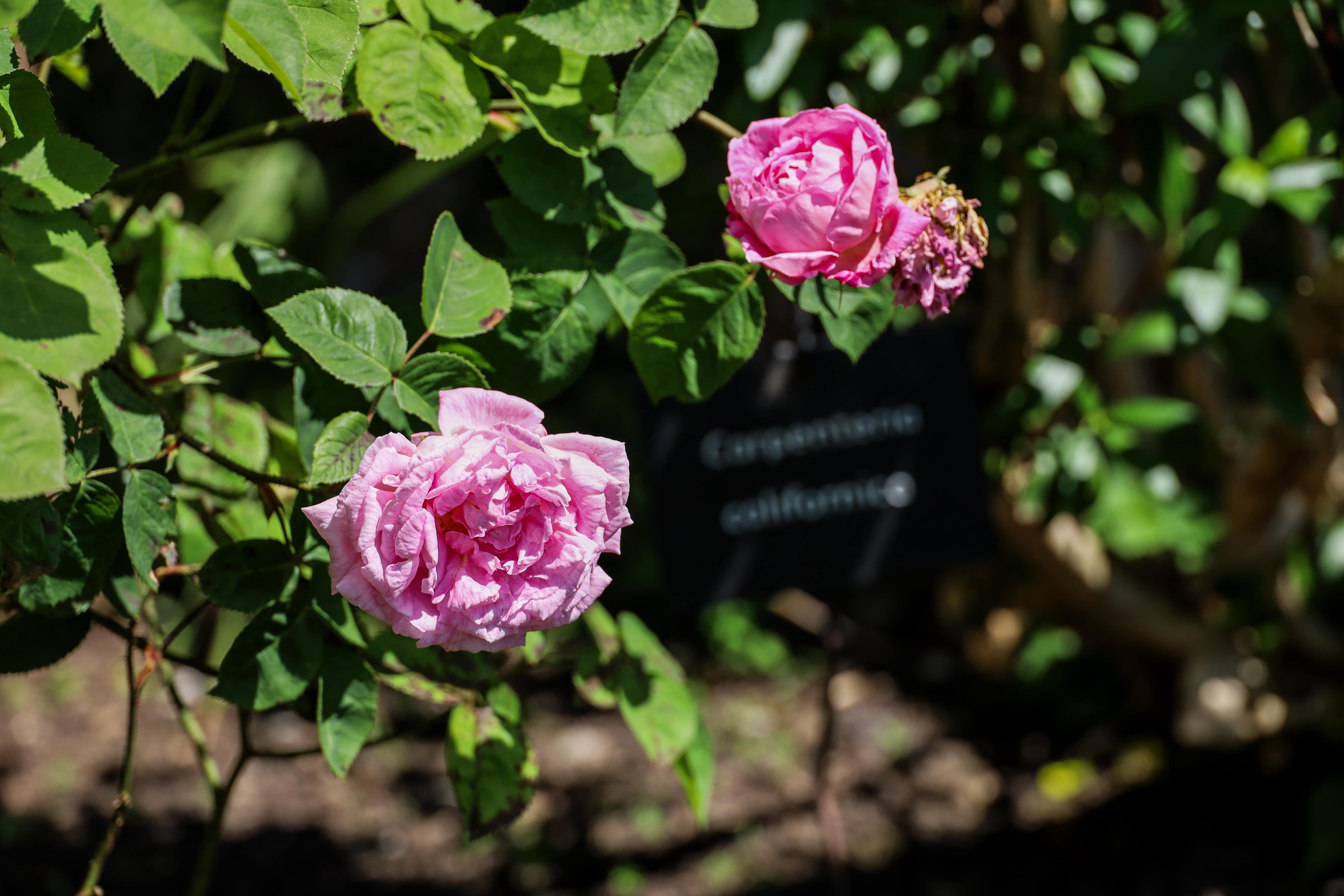
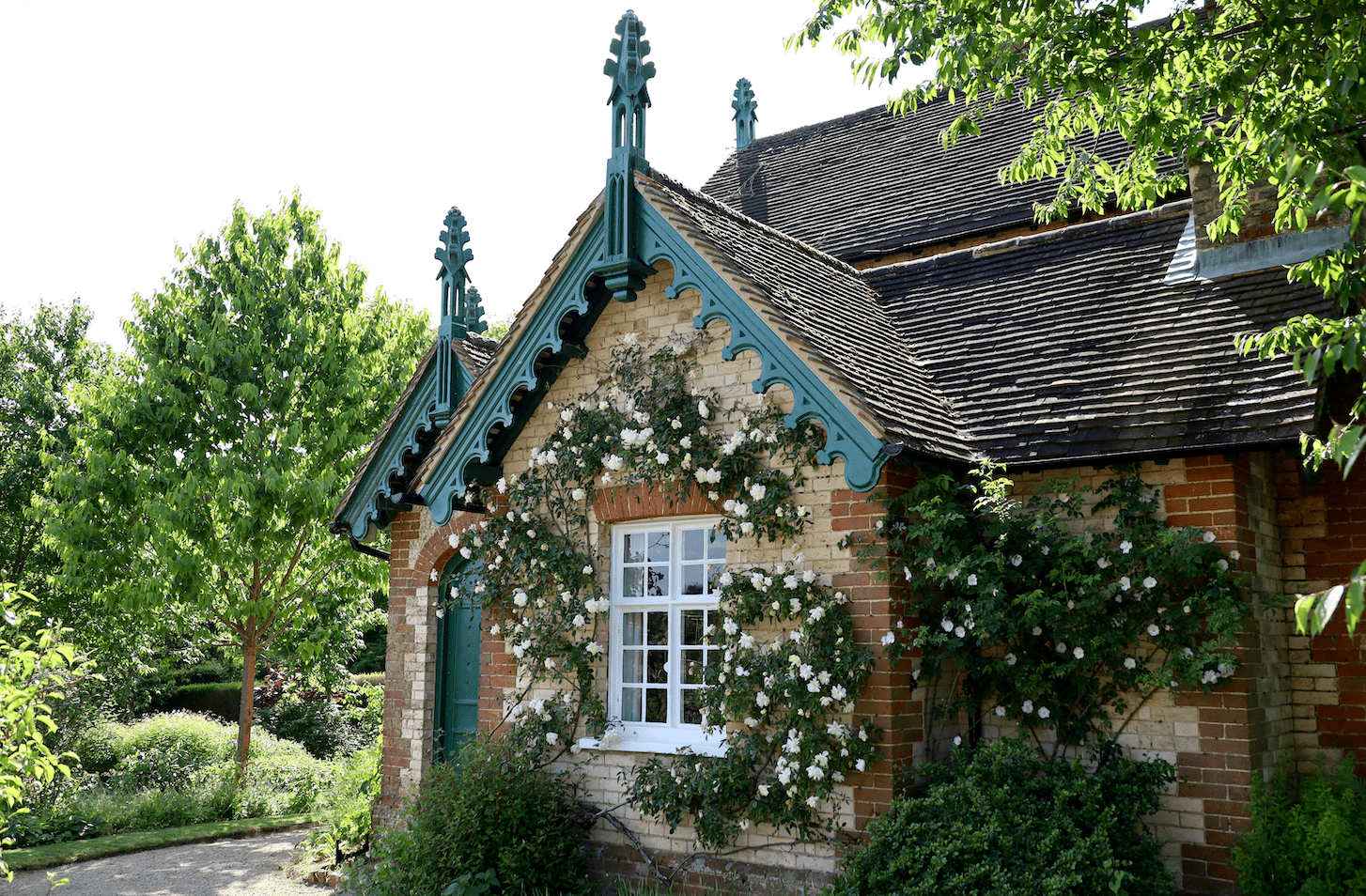
Garden Cottage Area
- Multiple white climbing roses (varieties undetermined)
- Large species rose bush with pale pink single blooms
Garden Layout and Rose Locations
Map of the Main Rose Garden Structure - Rose Pergola and central rose flower beds
Here is the map of the Rose Garden at the Polesden Lacey that was kindly provided by the National Trust and slightly edited by me to make it a bit easier to read.
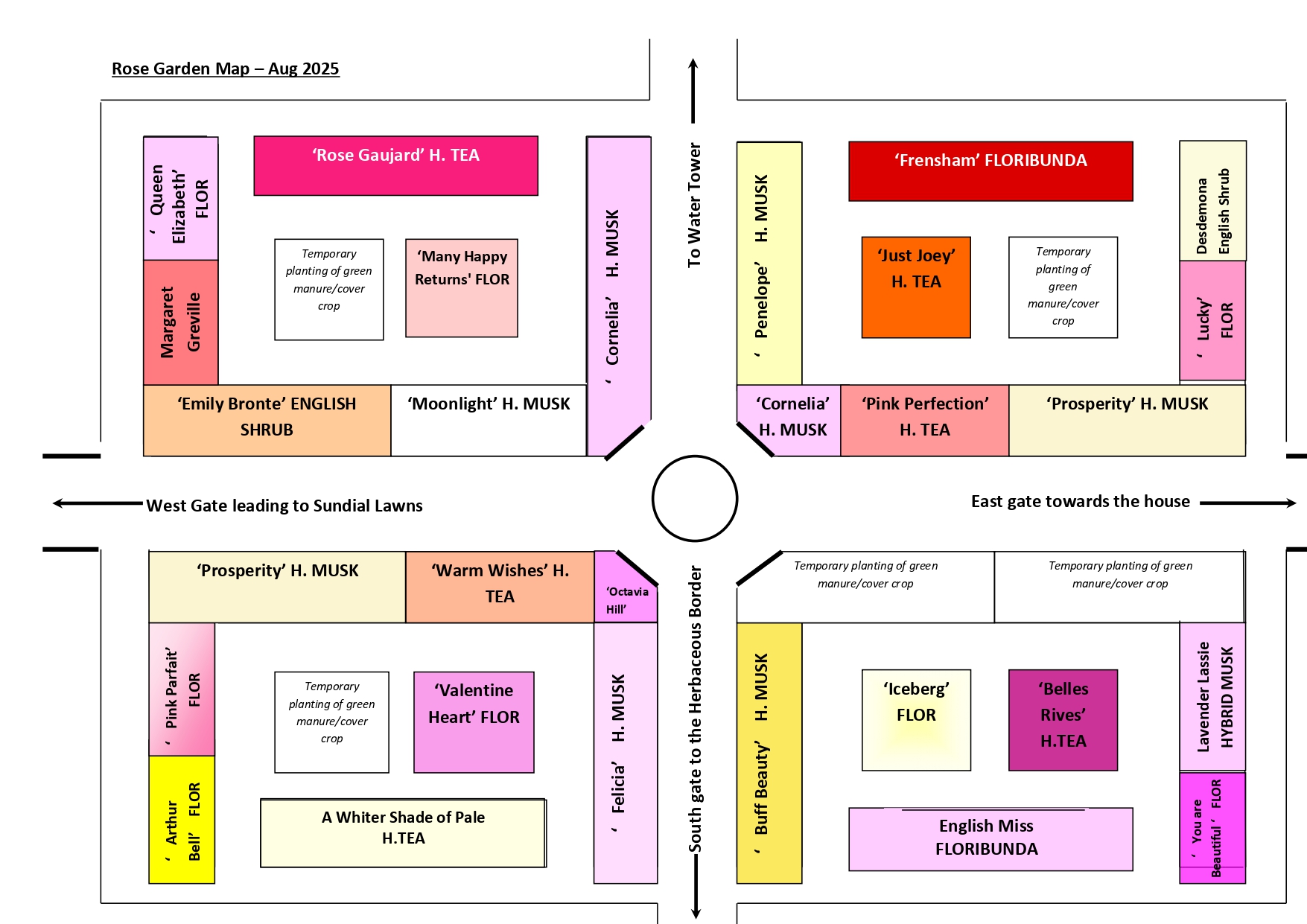
Key Features:
- Central Pergola: Sweet chestnut structure supporting 17 different rambling varieties
- Four Quadrants: Box-edged beds containing hybrid teas, floribundas, and hybrid musks
- Wall Borders: Climbing roses mixed with wild rose bushes, foxgloves and other lovely company plants
- Venetian Wellhead: 14th-century centrepiece
- Outer Borders: Species and old garden roses in informal plantings
The Future of the Rose Garden
As fundraising continues for the pergola restoration, this documentation stands as testimony to what exists now—a mature, complex collection that tells the story of rose breeding from the early 19th century to the present day. Whatever changes come, this record ensures that future visitors and gardeners will know what grew here in 2024, when the pergolas still stood weathered and silver, draped with roses that had climbed there for decades.
The question isn't whether restoration is needed—clearly it is. The question is whether the National Trust will recognize that the roses themselves are as historically significant as the structures that support them. Each mature climber represents years of growth, training, and care. They cannot be quickly replaced by young plants from a nursery without fundamentally altering the garden's character for years to come.
For now, visitors can still experience Polesden Lacey's rose garden in its mature glory. The 'Albertine' still cascades in salmon-pink profusion. 'Rambling Rector' still creates its white waterfall at the entrance. 'Veilchenblau' still offers its purple curiosity to those who look closely. This guide preserves their presence, whatever the future may hold.
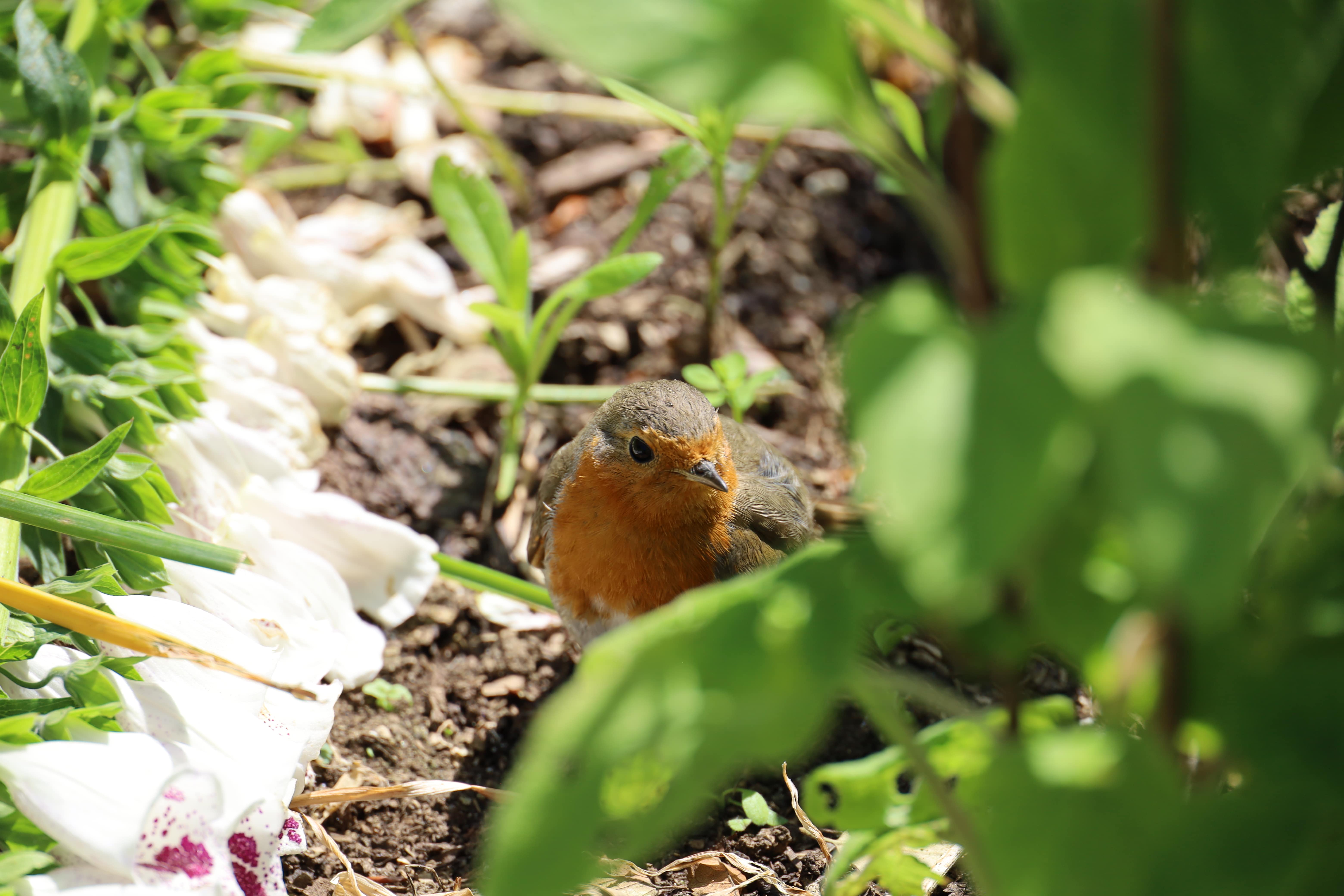
Conclusion: A Garden Worth Preserving in Full
Margaret Greville created more than a rose garden—she created a living library of rose history. From the species roses that remind us of the genus's wild origins to the latest introductions that show contemporary breeding achievements, every plant contributes to this narrative. The planned restoration offers an opportunity not just to repair infrastructure but to thoughtfully preserve this remarkable collection.
As I left through those metal gates, past the 'Rambling Rector' that had welcomed me hours earlier, notebook full and camera memory card nearly exhausted, I carried with me a complete picture of this garden at a crucial moment in its history. This documentation is my contribution to its preservation—not just of structures and soil, but of the roses themselves that give this garden its soul.
For updates on the pergola restoration project and to contribute to the fundraising effort, visit the National Trust's Polesden Lacey website

